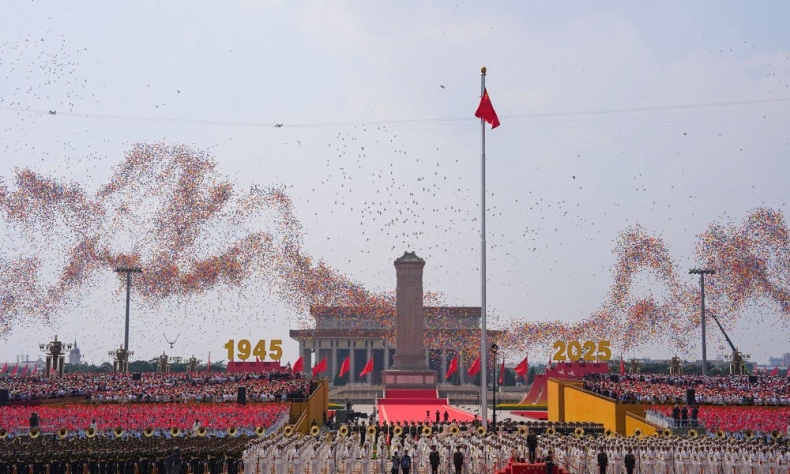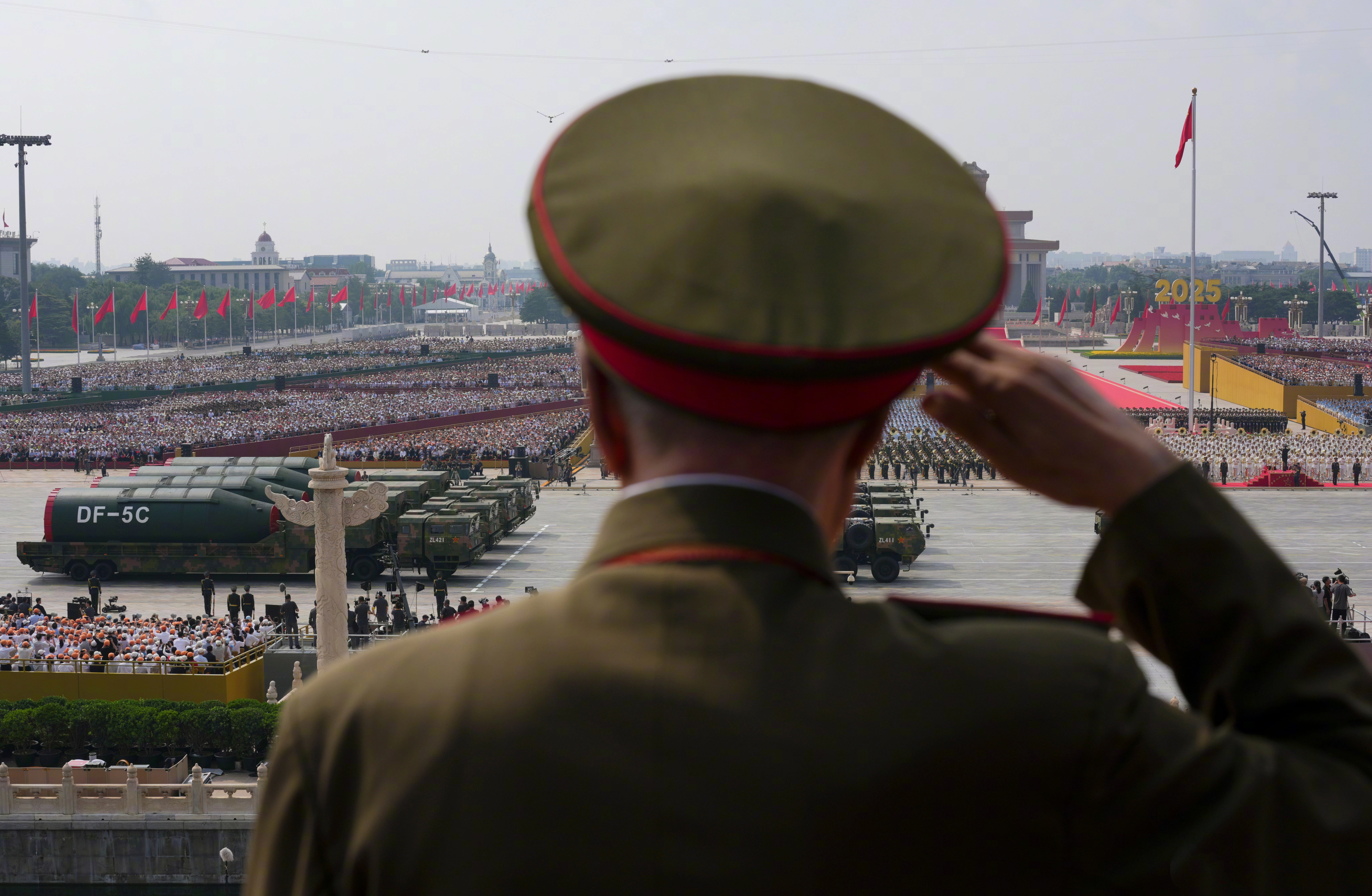The World Should Keep History in Mind and Cherish Peace Today

The mirror of history reflects not only the tragedies of the past but also our present responsibility and future choices.
On September 3, China solemnly commemorated the 80th anniversary of the victory in the Chinese People’s War of Resistance Against Japanese Aggression and the World Anti-Fascist War.
Eighty years is long enough for the smoke of war to dissipate, for prosperity to rise from ruins, and for the figures of those who witnessed it to fade away. However, the echoes of this darkest and most painful chapter in human history resonate across time, growing increasingly urgent amid today’s volatile international environment.
We commemorate not to dwell on past glories or wounds, but to draw wisdom from the mirror of history to answer a pressing question concerning humanity’s destiny: in a new era fraught with crisis, how can we avoid repeating past mistakes and protect our hard-won peace?
The lessons of the war were written with tens of millions of lives, and their core warnings are clear and profound.
The law of history makes clear: Aggression and expansion through force are doomed to fail. The violent actions, horrific massacres, and destructive plundering perpetrated by Japanese militarism caused unimaginable suffering for the Chinese people and many other Asian nations. The international community must therefore remain vigilant against the resurgence of militarist ideologies, for the shadows of history cast long warnings that demand our collective resolve to uphold the post-war international order.
Isolationism and unilateralism cannot guarantee safety. The pre-war mentality of “every nation for itself,” building high walls, led to the failure of collective security mechanisms. History proves that in the face of global challenges, no country can remain an island unto itself.
Economic dislocation and narratives of hatred are one of the breeding grounds for war. The Great Depression of the 1930s accelerated the rise to extreme nationalism, racial superiority theories and xenophobia. These malignant elements tore apart society and provided the ideological foundation and public sentiment fuel for the war machine.
“Today, humanity is again faced with a choice of peace or war, dialogue or confrontation, and win-win outcomes or zero-sum games,” said President Xi Jinping in his speech during the grand gathering on September 3. Looking at the world today, we regretfully find that the specter of history is haunting us in new forms. Geopolitical games are intensifying, and strategic trust among great powers is severely lacking. The smoke of armed conflict burns in multiple regions, and the authority of international law and the UN Charter is openly challenged. Economic globalization faces headwinds, with protectionism, unilateral tariff, sanctions, and “decoupling” actions fragmenting global markets and building new invisible walls. Populism and extreme nationalist ideologies are resurgent worldwide, with xenophobia, discrimination, and hatred speech spreading unchecked on social media, poisoning the atmosphere for international cooperation.

At this crucial historical juncture, we should draw lessons from history, build consensus, and work together in a spirit of cooperation. We should jointly defend the solid line of peace with a clear and resolute awareness of the need to prevent the repetition of historical tragedies.
First, we must safeguard the authority of the United Nations and the UN Charter, and practice true multilateralism. The international system, with the UN at its core, established on the ruins of WW II, has worked to maintain international peace and security, promote international cooperation, and advocate for the peaceful resolution of disputes. It laid the groundwork for modern multilateralism and offered hope for preventing another world war. Yet today, this system is being eroded by unilateralism, hegemony, belligerence, and bullying. In these increasingly complex and volatile times, it is all the more essential to defend the international system with the UN at its core, the international order based on international law, and the basic norms of international relations based on the purposes and principles of the UN Charter. We must continue striving for a more equal and orderly multipolar world that fosters inclusive and mutually beneficial economic globalization.
Second, we must promote the building of a community with a shared future for humanity. Global crises like climate change have proven that human destinies are intertwined. Faced with new existential challenges such as nuclear proliferation, cybersecurity, and AI governance, no nation can tackle them alone. We must transcend narrow zero-sum game thinking and find entry points for cooperation in key areas of common concern. Just as the anti-fascist alliance in WWII could set aside ideological differences to unite against a common foe, the international community today is fully capable of engaging in practical cooperation on addressing non-traditional security threats for the sake of humanity’s shared future. Only when nations across the world treat each other as equals, live in harmony and mutually support one another can common security be safeguarded, the root cause of war eliminated, and historical tragedies prevented from recurring.
Finally, we must remember history, honor the fallen heroes, cherish peace, and strive for a better future together. The Chinese People’s War of Resistance against Japanese Aggression constituted an integral part of the World Anti-Fascist War. Through immense national sacrifice, the Chinese people made significant contributions to rescuing human civilization and safeguarding world peace. Yet today, some seek to distort the historical truth, deny the victories achieved, and dismiss China’s role in the worldwide struggle against fascism. Such erroneous views pose a serious threat to international peace. History carries the lessons of the past and illuminates the path forward. To remember history is not to perpetuate hatred, but to learn from it together; to inherit history is not to dwell on the past, but to ensure that the torch of peace is passed on through generations.
Peace is like air — we only notice it when we are about to lose it, whereas in fact we cannot live without it. Standing at this commemorative milestone, we look back upon a monument of warning and forward to a path of peace that must be forged together. The mirror of history reflects not only the tragedies of the past but also our present responsibility and future choices. Avoiding a repetition of historic tragedies requires not empty slogans but firm political will, rational international cooperation, and the relentless pursuit of peace by every global citizen.
Song Fang is a lecturer at the Institute for International Strategic Studies of the Party School of the CPC Central Committee (National Academy of Governance).
The article reflects the author’s opinions, and not necessarily the views of China Focus.
 Facebook
Facebook
 Twitter
Twitter
 Linkedin
Linkedin
 Google +
Google +










